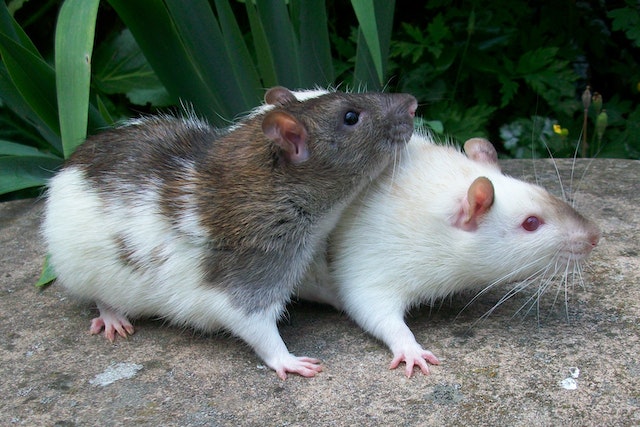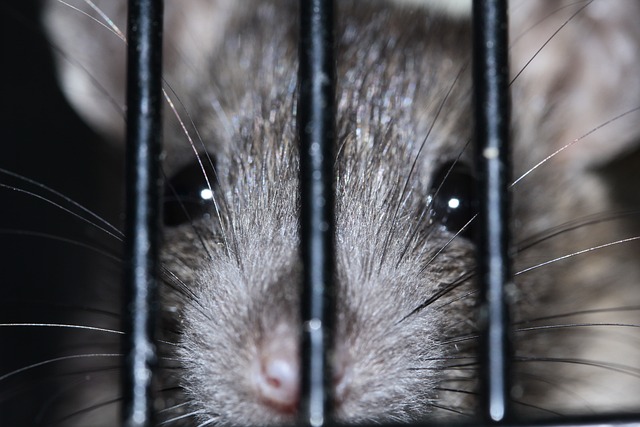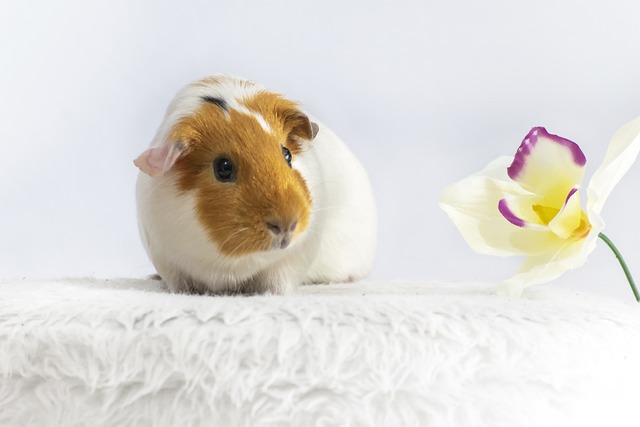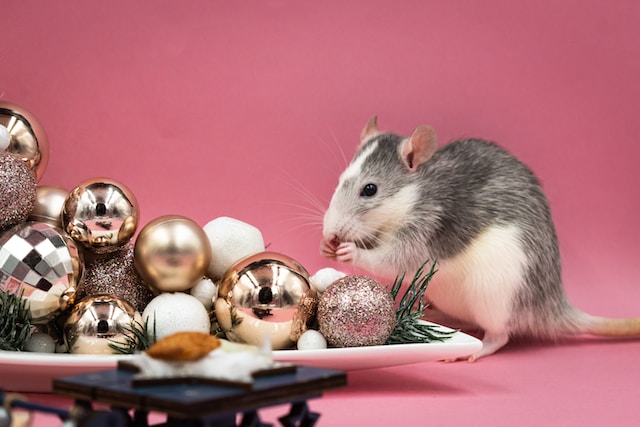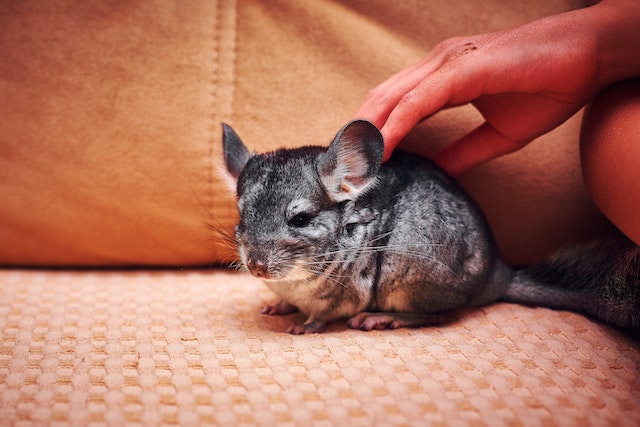Why Pet Rats Make Awesome Pets
There are some affiliate links below, but they are all products I highly recommend. For more info, view my disclosure here.
Have you ever considered getting a pet rat? Rats are often overlooked as potential pets, but they are actually pretty amazing animals with many great qualities that make them excellent companions.
They are intelligent and affectionate, and can live long and healthy lives with the right care. In this article, we’ll discuss why rats make great pets and some of the benefits that come along with owning one.
Rats have been kept as pets for centuries, but only recently has their popularity grown significantly. They have become increasingly popular due to their intelligence, playful personalities, and adaptability to different homes.
Unlike other small animals like hamsters or guinea pigs, rats are very social animals and thrive in environments where they have companionship. They bond quickly with their owners, becoming devoted friends who will be loyal for life.
Rats also require less maintenance than other small pets. Unlike cats or dogs, they don’t need regular walks or frequent trips to the vet. With proper nutrition and exercise they can live up to 4 years — longer than most hamsters or gerbils – making them an excellent choice for people who want a low-maintenance pet companion. Keep reading to learn more about why rats make such great pets!
Pros Of Owning A Pet Rat
Owning a pet rat can be incredibly rewarding. From their inquisitive nature to their playful personalities, rats make great companions and bring joy to their owners. Here are some of the pros of owning a pet rat:
First of all, rats are low-maintenance pets that require minimal upkeep. Unlike cats or dogs, they don’t need daily walks and only need to be groomed once a week or so. They also don’t require much space; one or two rats can happily live in relatively small spaces like cages Plus, rats are relatively inexpensive animals to buy and maintain, making them an affordable option for those on a budget.
Rats are also quite intelligent animals and can be easily trained with positive reinforcement methods like treats or praise. With patience and consistency, they can learn all sorts of tricks like coming when called, running through obstacle courses, and more! Additionally, rats have social needs just like any other pet; they enjoy interacting with humans as well as playing with other rats.
Rats have numerous health benefits too; studies have shown that interacting with animals can help reduce stress levels, lower blood pressure, and increase self-esteem.
Owning pet rats is also beneficial for children’s development since it teaches them responsibility as well as empathy towards animals. All in all, it’s no surprise why so many people love having pet rats – they’re loyal companions who bring tons of fun into your life!
Rat Personality And Temperament
Rats have a lot of personality that makes them great pets. They have an affectionate and curious nature, which means they can be entertaining to watch. This also means that they bond well with their owners. Rats are also very intelligent, so they can learn basic tricks like coming when called and fetching objects.
When it comes to temperament, rats generally don’t bite unless provoked or scared. They may squeak if startled, but this is more out of surprise than aggression. Moreover, since rats are social animals, they thrive in the company of other rats or humans. This makes them ideal for families who want more than one pet in the house.
Unlike some other animals, rats don’t require much maintenance or attention to be happy and healthy. They need regular exercise and playtime, but these can be easily facilitated by providing them with lots of toys and space to explore. Additionally, they are relatively low-maintenance as far as grooming goes; all they need is occasional nail trimming if their nails get too long.
Overall, rats make excellent pets because of their loving personalities and low-maintenance needs. With proper care and attention, these small creatures will reward you with years of companionship and joy!
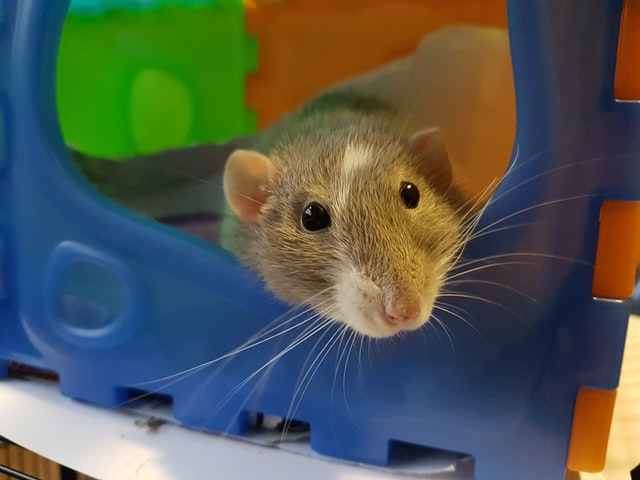
Rat Diet And Nutrition
When considering rat diet and nutrition, the first thing to note is that rats are omnivores and need a balanced diet. They thrive on fresh vegetables and fruits as well as specially formulated rodent pellets.
In addition to these items, they may enjoy treats like nuts, seeds, yogurt drops, or cooked eggs. It’s important to provide variety in their diets so they don’t become bored with what they’re eating.
In order to keep them healthy, it’s essential that their food is fresh and not left out for too long. Additionally, water should be changed regularly and any leftover food should be thrown away after 24 hours. While it can be tempting to overfeed our pet rats snacks, it’s important to remember that these treats should only make up a small portion of their diet.
Good nutrition is key in keeping our pet rats happy and healthy. When feeding your rats, always make sure that you provide a variety of foods for them to choose from.
Be sure to read the labels of any store-bought food before you buy it so you know exactly what nutrients your pet rat needs. With the right knowledge and care, your rat will have all the nutrients necessary for a long life with you!
How To Feed A Pet Rat: The Right Foods For Healthy Rodents
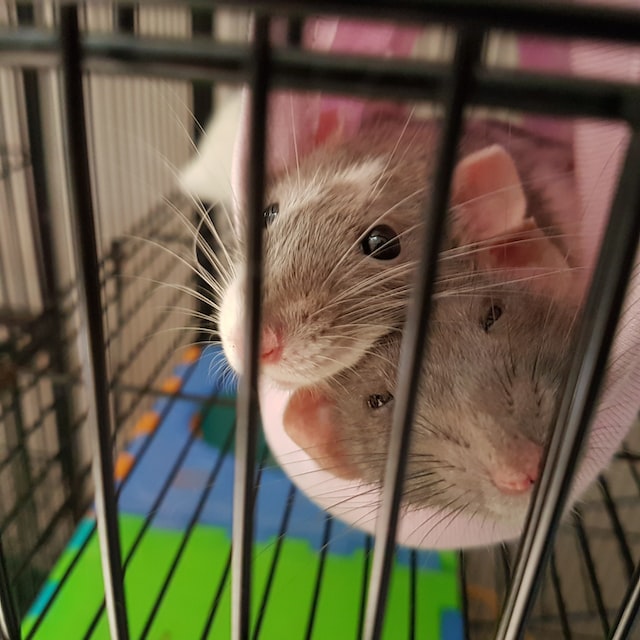
Adopting Or Purchasing A Rat
Adopting or purchasing a rat can be quite a rewarding experience. Rats are relatively low maintenance pets, and can provide an incredible amount of companionship and love. When thinking about acquiring a rat, there are several things to consider.
First, you must decide whether you want to purchase from a breeder or pet store, or if you would like to adopt from a rescue organization. Breeders tend to have more specialized rats for those who are looking for something specific, such as show-quality coat colors or particular markings.
However, adoption is often the best option because it helps support animal rescues and saves lives in the process.
My very first set of pet rats were rescued, and they were amazing pets! My best friend was driving home from work when she saw a guy on the side of the road selling rats as feeder food for snakes. Her heart broke, so she turned around and took 4 of them so we could each have two. They were the smartest, sweetest babies!
Next, think about the age of the rat that you want to acquire. While older rats will require less attention than younger ones, they may come with medical issues due to their age that may need extra care.
Young rats are very energetic and playful; however, they can also be prone to behavioral issues such as biting if not properly socialized early on. Additionally, younger rats may need special supplements or vitamins given during their growth phase in order to stay healthy throughout life.
It’s important that prospective owners do their research before taking home any pet rat – this includes researching vet clinics in your area that specialize in rodent medicine so you know where to go should any medical issues arise later on down the line.
Researching good diets for your new pet is also key; depending on your rat’s age and activity level, it may need more (or less) food than others of its kind in order for it to stay healthy and happy. Ensuring you have all of these basics covered before bringing your new pet rat home will ensure both you and your rat have an enjoyable time together!
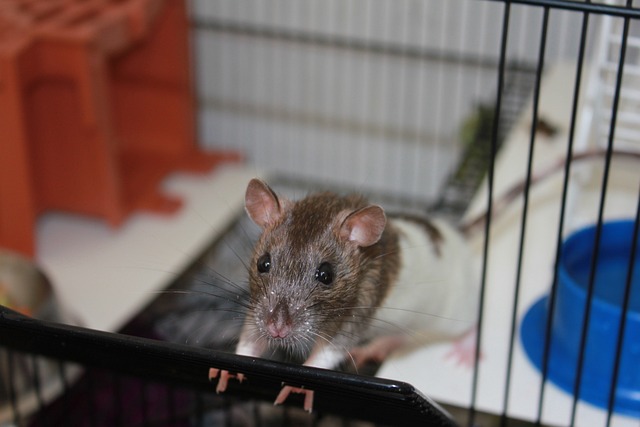
Housing And Bedding For Pet Rats
When it comes to providing a home for your pet rat, there are a few things to consider. The first is the type of cage that you’ll need. Rats are active animals, so they require a large enough space to move around freely.
Most pet store cages come with plenty of room and various levels for climbing. Additionally, it’s important to make sure the cage has a secure lid, as rats can be escape artists!
The next factor to consider is bedding. It’s best to avoid using any kind of wood shavings or sawdust in the bottom of the cage. Instead, use material like shredded paper, which will allow for better air circulation and help keep your rat healthy.
As an added bonus, shredded paper also absorbs odors much better than other materials, making cleaning up messes easier. Plus, rats love nesting and that gives them some enrichment when they can shred and create nests as they like.
Finally, don’t forget about accessories! Rats love having somewhere to hide and chew on things like sticks or cardboard boxes that are safe for them to gnaw on. You can also provide toys like balls and blocks for them to play with when you’re not around – this helps keep them from getting bored and promotes healthy exercise habits.
With just a few simple steps and items, you can create an ideal environment for your new pet rat!
Interactive Toys And Accessories For Pet Rats
Interactive toys and accessories for pet rats are a great way to keep them entertained. While providing your pet rat with daily playtime outside of their cage is important, having some fun items inside the cage can help keep them busy. Toys such as cardboard tubes and tunnels, hammocks, and ladders can provide hours of entertainment. These items also give your rat a sense of security while they explore their environment.
Accessories such as chew toys, bird feeders, and hanging bells are also great additions to a pet rat’s habitat. Chew toys not only help keep your rat’s teeth healthy but also give them something to do when they’re feeling bored or anxious.
Bird feeders are a fun way to add variety to their diet and give them something new to explore every day. Hanging bells are great for providing auditory stimulation which helps stimulate cognitive development in rats.
In addition to all these interactive items, it’s also important to provide your rat with daily physical exercise outside of the cage. This can be done through activities such as supervised floor time or playing fetch with small objects like balls or cups.
Allowing them this freedom will help keep them fit and healthy while giving you an opportunity to bond with your pet rat too!
Rat Grooming And Hygiene
Grooming and hygiene are important considerations when it comes to owning a pet rat. Rats require regular brushing, trimming of their nails, and cleaning of their cage. Brushing your rat helps keep its coat shiny and healthy, while regular nail trimmings will help prevent potential injuries. Cleaning the cage regularly is also an essential part of keeping your rat healthy. Not only will this help reduce odors in the home, but it will also help keep rats free from parasites and diseases.
There are many tools available to make grooming and hygiene easier for pet rats. Soft-bristled brushes can be used to gently remove dirt and debris from a rat’s fur. Nail trimmers should be used carefully to avoid cutting too far into the quick of the nail. Cage cleaning supplies such as litter boxes, liners, bedding, and other sanitation products can be purchased to make this task simpler for owners.
Overall, proper grooming and hygiene for pet rats is an important part of owning one as a pet. It is not difficult to take care of them if you have all the necessary tools on hand and know how to use them properly. Having a clean space for your rat helps create a safe environment where it can live happily and healthily with you as its owner.
Veterinary Care For Pet Rats
When it comes to caring for pet rats, veterinary care is important, but not needed as frequently as they are for cats and dogs. Rats can be prone to health issues such as respiratory infections, so having a vet on hand to monitor their health is important.
It’s helpful to have an experienced veterinarian who is familiar with rat physiology and behavior. This can help if you ever have questions or concerns about your pet rat’s health. A good vet will also be able to answer questions about diet, exercise, and other important aspects of rat care.
Finding a qualified veterinarian who is knowledgeable and experienced in pet rat care can be a bit of a challenge, but it’s worth the effort. Doing research ahead of time and asking your local animal shelter or rodent rescue group for recommendations can make the process easier. Once you find someone who meets all your needs and requirements, you’ll have peace of mind knowing that your rat is getting the best possible care available.
Rat Behavior And Socializing
Rats are incredibly intelligent and social creatures, making them excellent pets for those looking for a unique companion. Socializing a rat is key to having a healthy relationship with your pet. Unlike some other animals, rats enjoy being handled and interacting with their owners.
One way to encourage socializing is to give your rat plenty of opportunity to explore its environment and interact with you. Spend time each day handling the rat and let it climb on you or explore its surroundings in a safe area.
Rats will also appreciate toys that can help keep them entertained, such as tunnels or ropes they can climb on. It’s important to give your rat lots of one-on-one interaction so it doesn’t become too shy around humans.
In addition, rats need mental stimulation in order to stay healthy and happy. Play time with your rat can involve activities like tugging on strings or chasing balls, which helps keep your pet active and alert.
Rats also love puzzle toys that require them to figure out how to get treats out of different containers — this type of activity can help exercise their minds while providing entertainment at the same time.
It’s important to remember that even though rats are small animals, they still need plenty of attention from their owners in order to thrive. With patience and dedication, you’ll be able to create a strong bond with your pet rat that will last for years.
Rat Health And Lifespan
Rats have an impressive lifespan, especially when compared to other small animals. Their average lifespan is 2-4 years. With proper care, they can sometimes live even longer. This makes them a great pet choice because they don’t require the same level of commitment as a dog or cat would.
When it comes to health, rats are relatively resilient and rarely suffer from serious illnesses. To keep your rat in tip-top shape, make sure to feed it a balanced diet and ensure it has plenty of opportunity for exercise and enrichment. Additionally, you should monitor its environment for any changes that could put it at risk of infection or disease.
It’s also important to note that rats are quite sensitive creatures and can become easily stressed if their living conditions aren’t ideal. Make sure that the cage is large enough for your rat to move around freely, and provide plenty of toys and activities to keep them entertained. These simple steps will help ensure that your rat stays healthy for many years!
Frequently Asked Questions About Pet Rats
What Is The Average Cost Of A Pet Rat?
When it comes to having a pet, rats can be an excellent choice. They are easy to care for, can have a long lifespan and make great companions. But one of the first questions many potential rat owners have is – what is the average cost of a pet rat?
The cost of a pet rat varies depending on where you purchase them from and their age. Pet stores often sell baby rats that are around 3-5 weeks old for around $15-$20 each. If you want an older rat, then these tend to be more expensive as they will already be used to being handled and tamed. In this case, you might pay anywhere between $25-$35 per rodent.
In addition to the cost of buying your pet rat, there will also be other expenses such as housing, toys, bedding and food which need to be accounted for when budgeting for your new companion. A cage alone could set you back anywhere from $30-$100 depending on its size and design. Other accessories such as food bowls, water bottles and chew toys can add up too. All in all, it’s estimated that setting up everything you need for your pet rat could cost between $60-$200 dollars in total.
So if you’re considering taking on a new pet but don’t want something too high maintenance or expensive then a pet rat may just be the perfect choice for you! With some basic items like a cage and bedding provided upfront it’s easy to give these little guys everything they need in order to live happily ever after with their new owners.
Are Pet Rats Compatible With Other Animals?
Are pet rats compatible with other animals? This is an important question for anyone considering adding a rat to their family. While most rats are friendly and sociable, it’s important to know if they can get along with the other animals in your home.
The good news is that pet rats can make good companions for many different kinds of pets. Rats usually do well around cats and dogs, as long as the animals are used to each other’s presence. They also tend to be social creatures, so if you have another rat, they’ll likely get along swimmingly. Birds and reptiles may also get along with a pet rat, although it’s best to supervise the interactions between them just in case.
It’s worth noting that some small-prey animals such as hamsters and guinea pigs may not be able to coexist peacefully with a pet rat. Aggression from the rat towards these animals or vice versa is possible and should be avoided at all costs. It’s best to research any potential issues before introducing your new pet into your home so that you can make sure everyone stays safe and happy!
No matter what kind of animal you have at home, it’s important to keep an eye on how your pet rat interacts with them. If you notice any signs of aggression or fear from either side, separate the animals immediately until you can determine if they can safely coexist together. With proper supervision and care, owning a pet rat doesn’t have to mean sacrificing the companionship of other animals!
How Often Do Rats Require Exercise?
Exercising your pet rat is important for its overall health and happiness. Rats require physical activity to keep their bones and muscles strong, as well as to help with their mental health. They need to exercise just like any other pet, such as a dog or a cat.
There are plenty of ways that you can give your pet rat the exercise it needs. One of the best ways is to buy an exercise wheel or ball for them. This will allow them to run around and get all the activity they need while in the comfort of their cage.
You can also take them out of their cage and let them explore different areas of your home, giving them an opportunity to get some fresh air and explore new things.
It’s important to remember that rats require regular exercise in order for them to stay healthy and happy. Aim for at least 15 minutes per day of physical activity for your pet rat, either through an exercise wheel or by taking them out of their cage for exploration time. With consistent exercise, you’ll watch your rat thrive both physically and mentally!
Is It Difficult To Potty Train Pet Rats?
Potty training a pet rat may seem like a difficult task, but it doesn’t have to be. Pet rats can be easily trained to use a litter box, similar to cats. Even better, they don’t need as much space as cats, so the litter box is easier to maintain in an apartment or other small living space.
The first step in potty training your rat is to provide them with the right environment. This means providing them with a clean and comfortable cage, along with plenty of bedding material that’s easy to dispose of. You should also make sure the cage has enough ventilation so that any waste won’t build up and create an unpleasant odor.
Once your rat’s environment is ready for potty training, it’s time for you to start introducing them to the litter box. You can place small pieces of food or treats inside the box so that your rat will be encouraged to explore it and eventually start using it for their business.
If you notice your rattie usually tends to potty in the same corner, place the litter box there to make it easier for them to understand that’s their designated spot.
Additionally, you should always keep the litter box in the same spot in their cage and make sure it’s always cleaned out regularly. With consistency and patience, your rat should soon become accustomed to using the litter box just like any other pet!
In no time at all, you’ll have a house-trained pet rat who is ready to snuggle up on your lap and give you lots of love!
So, now you know that rats make excellent pets for many reasons! They are relatively inexpensive to own and maintain, costing around $10 to $20 for a single rat. Additionally, rats are quite compatible with other animals, making them an ideal choice for someone who has more than one pet.
When it comes to exercise, rats require about 30 minutes of playtime each day in order to stay healthy and happy. And while they don’t need specific vaccinations, it’s important to keep their environment clean and free of any potential health hazards. Finally, potty training is not difficult when you take the time and patience to do it properly.
All in all, owning a pet rat can be incredibly rewarding if you’re willing to put in the effort!
